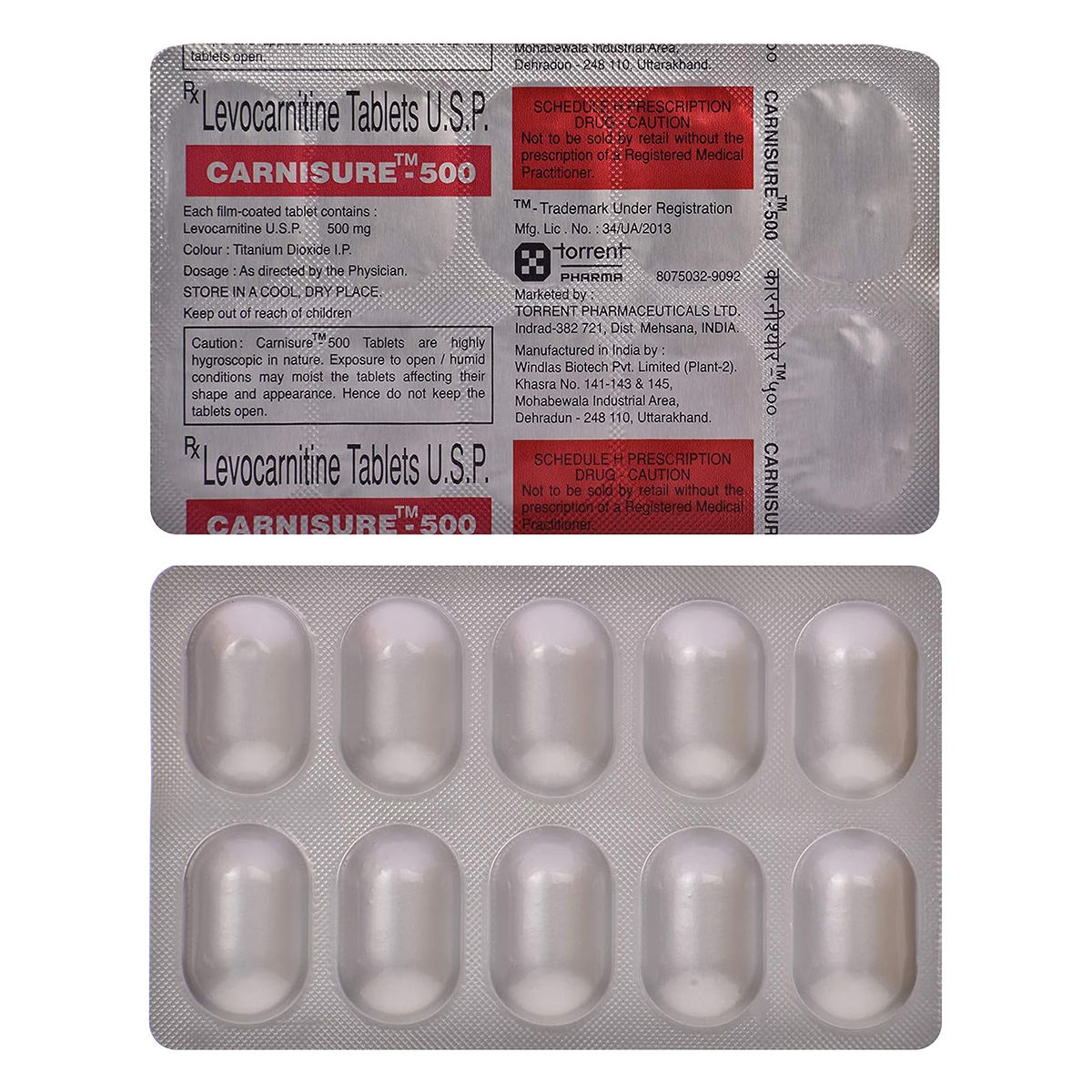Levocarnitine
About Levocarnitine
Levocarnitine is indicated for the acute and chronic treatment of patients with an inborn error of metabolism that results in secondary carnitine deficiency. It is also indicated to prevent and treat carnitine deficiency in end-stage renal disease patients undergoing dialysis.
Levocarnitine contains Levocarnitine, an amino acid that works by improving the levels of carnitine in the body. Thereby, Levocarnitine helps treat carnitine deficiency. It may alleviate the metabolic abnormalities of patients with inborn errors that result in the accumulation of toxic organic acids.
Levocarnitine will be administered by a healthcare professional; do not self-administer. In some cases, Levocarnitine may cause nausea and vomiting. Most of these side effects of Levocarnitine do not require medical attention and gradually resolve over time. However, if the side effects persist or worsen, please consult your doctor.
If you are allergic to any of the components in Levocarnitine, please inform your doctor. Consult your doctor if you are pregnant or breastfeeding. Let your doctor know if you are taking any prescription or non-prescription medicines, including supplements and herbal products.
Uses of Levocarnitine
Medicinal Benefits
Levocarnitine is indicated for the acute and chronic treatment of patients with an inborn error of metabolism that results in secondary carnitine deficiency. It is also indicated to prevent and treat carnitine deficiency in end-stage renal disease patients undergoing dialysis. Levocarnitine contains ‘Levocarnitine’, an amino acid that works by improving the levels of carnitine in the body. It may alleviate the metabolic abnormalities of patients with inborn errors that result in the accumulation of toxic organic acids.
Directions for Use
Storage
Side Effects of Levocarnitine
- Nausea
- Vomiting
Drug Warnings
If you are allergic to any of the components in Levocarnitine, please inform your doctor. Consult your doctor if you are pregnant or breastfeeding. Let your doctor know if you are taking any prescription or non-prescription medicines, including supplements and herbal products.
Drug Interactions
Drug-Drug Interactions: No interactions found/established.
Drug-Food Interactions: No interactions found/established.
Drug-Disease Interactions: No interactions found/established.
Drug-Drug Interactions Checker List:
Safety Advice

Alcohol
cautionThe interaction of alcohol with Levocarnitine is unknown. Please consult your doctor if you have any concerns.

Pregnancy
cautionThere are no adequate and well-controlled studies on the use of Levocarnitine in pregnancy. Hence, inform your doctor before receiving this medicine if you are pregnant.

Breast Feeding
cautionLevocarnitine supplementation in lactating mothers has not been studied. If you are breastfeeding, please inform your doctor before receiving this medicine.

Driving
cautionIt is not known if Levocarnitine affects your ability to drive. Drive or operate machinery only if you are alert.

Liver
cautionIf you have liver problems, inform your doctor before taking Levocarnitine. Your doctor may adjust the dose or may prescribe a suitable alternative based on your condition.

Kidney
cautionIf you have kidney problems, inform your doctor before taking Levocarnitine. Your doctor may adjust the dose or may prescribe a suitable alternative based on your condition.

Children
cautionLevocarnitine could be used in children to treat carnitine deficiency. The dose of this medicine will be decided by your doctor based on the body weight of your child.
Habit Forming
Diet & Lifestyle Advise
- Include meat, milk, fish, tempeh, asparagus, wheat, and poultry in your diet.
- Exercising regularly helps in improving overall health.
- Rest well, and get plenty of sleep.
- Avoid smoking and alcohol consumption.
- Meditation and yoga can help lower stress.
- Avoid processed and fried food.
- Follow a well-balanced diet.
Patients Concern
Disease/Condition Glossary
It is a condition characterised by low levels of carnitine in the body. Carnitine deficiency could be primary or secondary. Primary carnitine deficiency prevents the body from utilising fats for energy, particularly during fasting. Secondary carnitine deficiency occurs when there is not enough carnitine in the blood. Symptoms of carnitine deficiency include tiredness, irritability, delayed motor development, and muscle weakness.
FAQs
Levocarnitine is indicated for the acute and chronic treatment of patients with an inborn error of metabolism that results in secondary carnitine deficiency. It is also indicated to prevent and treat carnitine deficiency in end-stage renal disease patients undergoing dialysis.
Levocarnitine works by improving the levels of carnitine in the body. Thus, it helps treat carnitine deficiency.
Consult your doctor before taking warfarin while on treatment with Levocarnitine. Regular monitoring of INR levels (a blood test indicates how well the blood clots) is recommended if you take warfarin whilst on treatment with Levocarnitine.
Nausea and vomiting could be a side effect of Levocarnitine. It is not necessary for everyone taking Levocarnitine to experience this side effect. However, if the condition persists or worsens, consult your doctor.
Levocarnitine may be indicated to prevent and treat carnitine deficiency in end-stage renal disease patients undergoing dialysis. Consult your doctor if you have any concerns regarding this.







